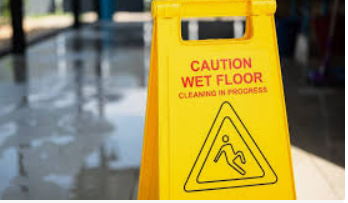INJURED IN AN ACCIDENT?
CALL OR TEXT “HELP” TO 877-627-4223
As compared to trip and fall accidents, slip and fall accidents—in which the victim’s foot fails to maintain the friction needed to stay in place when walking, often causing a backwards fall—are more likely to be caused by transient factors: precipitation from snow, rain or ice, debris, spilled liquid, and other elements which might lead to a slippery (that is, low-friction) surface.

By the time an investigation starts, the factors that lead to the accident may have been cleaned up or disappeared on their own (for example, a patch of water that dried up in a heated lobby or a sloppy worksite that has since been tidied up). If you have been injured in a slip and fall accident, it is not only highly important to retain an attorney as early as possible but to retain one that prioritizes an early and comprehensive investigation.
Businesses owe their customers a duty of care to ensure they can safely shop without fear of injury. Managers and employees must take reasonable steps to keep their businesses safe.
Failure to meet the above requirements can lead to being held liable for accidents and injuries.
To hold the business or property owner responsible for a slip and fall accident, you must be able to prove they have failed in their duty of care, proving their negligence.
If you have experienced a slip and fall accident, you should take several steps to protect your rights.
There are various forms of compensation that you may be entitled to after you slip and fall: